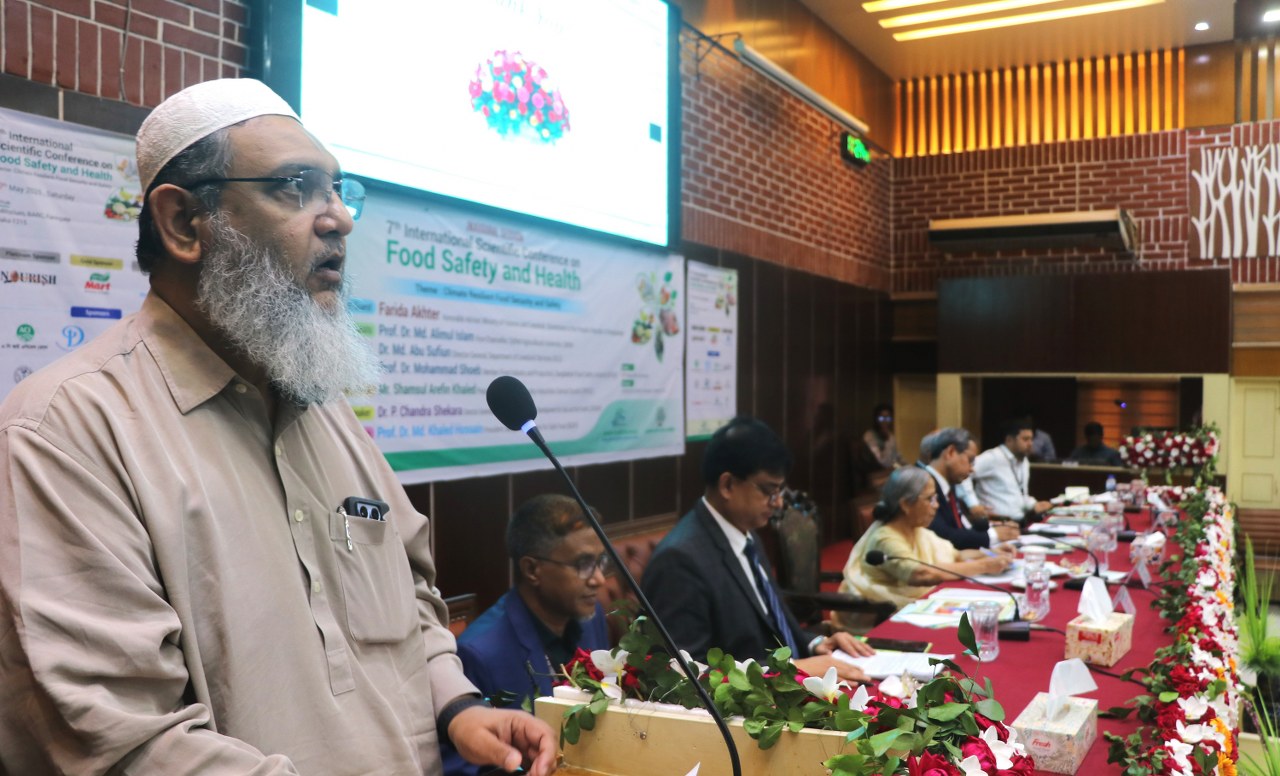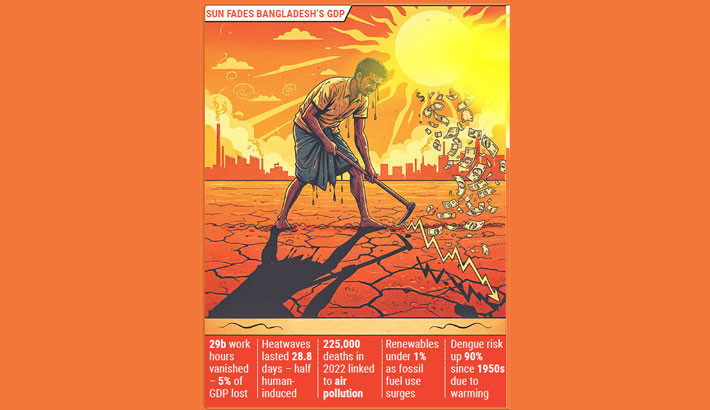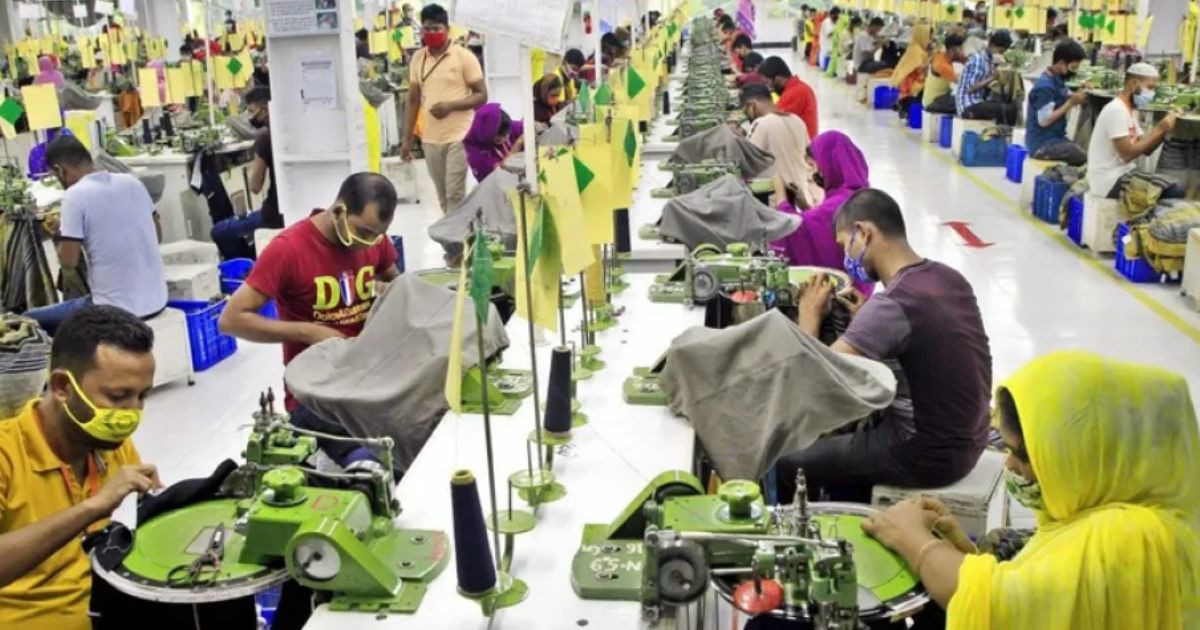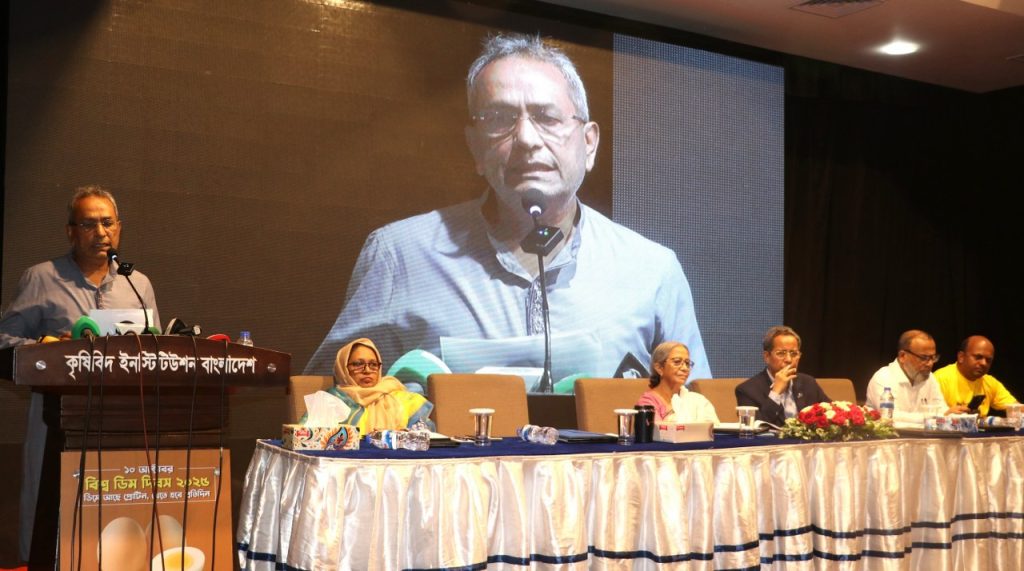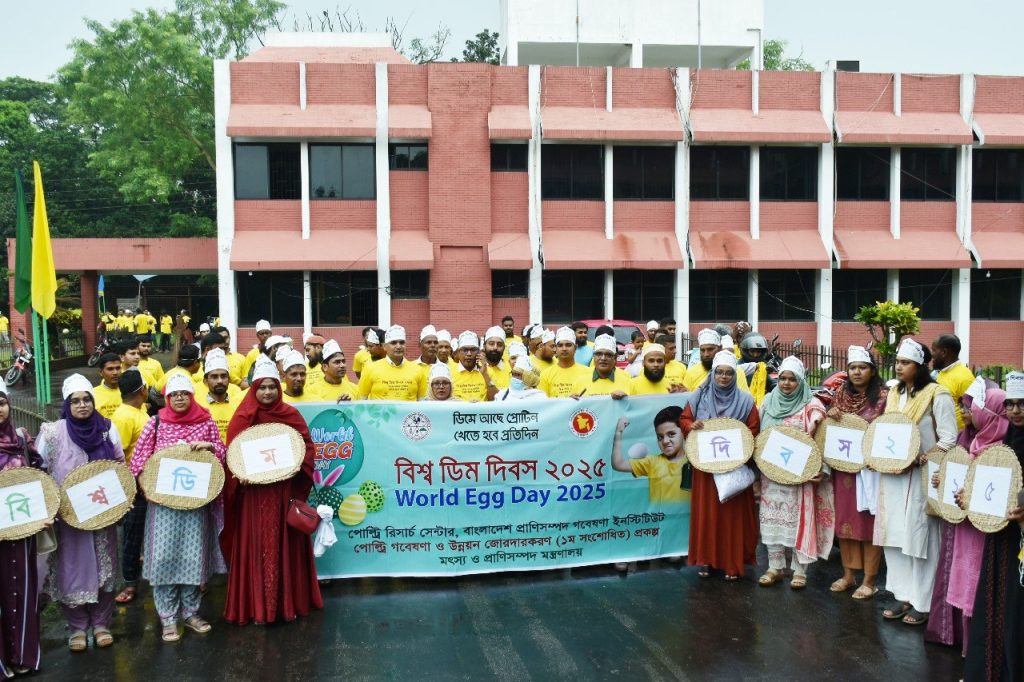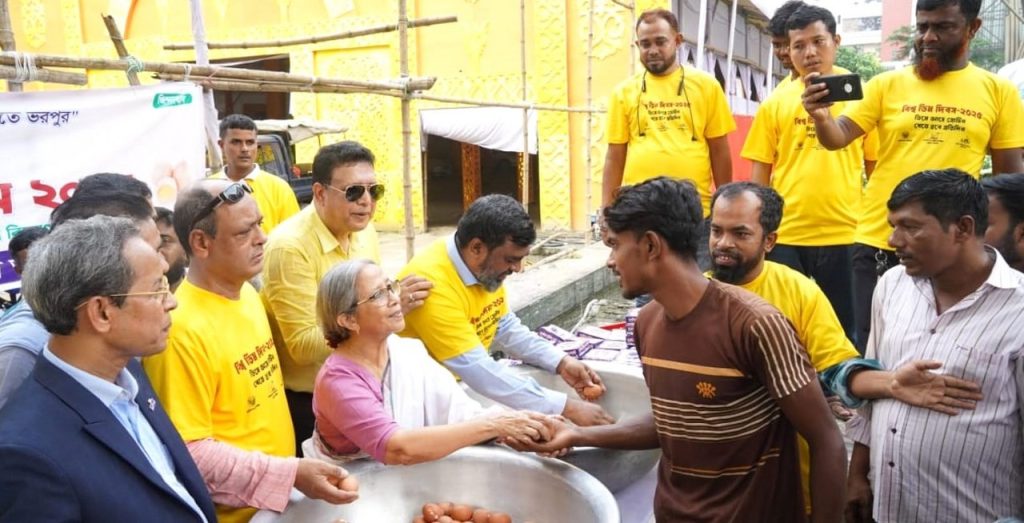Poultry Sector faces challenge due to pure water crisis – BPICC President

- Update Time : Monday, June 9, 2025
- 350 Time View
RN Desk: Bangladesh’s poultry industry is currently facing a stark reality—a severe crisis in the supply of pure water is becoming the biggest challenge to its survival. This was stated by Shamsul Arefin Khaled, President of the Bangladesh Poultry Industries Central Council (BPICC), at the 7th International Scientific Conference. The conference, titled “Climate-Resilient Food Security and Safe Food,” was organized by the Bangladesh Society for Safe Food (BSSF) on Saturday (May 10) at the BARC building in Dhaka.
He said that each chicken requires an average of 3 to 4 liters of pure water daily. However, the groundwater level is steadily depleting, making it increasingly difficult to ensure safe water supply to farms in many areas of the country. It is not only water scarcity that is posing a threat—the impacts of climate change have led to water pollution in many places, further endangering the farm health systems. This has resulted in increased disease incidence, higher antibiotic use, abnormally rising production costs, and significant economic challenges for farmers.
Shamsul Arefin said, “The shortage of pure water poses a direct threat to the productivity of the poultry sector and to the safe food supply. It is no longer just a farmers’ issue—it is a question of public health and national nutrition security.” He pointed out that due to the lack of pure water, broiler chickens’ growth rates are declining in many farms. Research has shown that for every 1°C increase in temperature, a chicken’s weight drops by an average of 5%, and egg production is also severely affected.
He further noted that irregular rainfall patterns, drought, and salinity intrusion, driven by climate change, are severely pressuring the poultry and livestock sectors. Alongside water shortages, the production of grass and grazing lands is also decreasing. As a result, ensuring sustainability in the livestock sector is becoming increasingly challenging.
In light of this, he emphasized the use of modern technology for smart farming and water management. Specifically, he recommended measures such as rainwater harvesting, water recycling, and drip irrigation systems to conserve water. He also stressed the need to stop the indiscriminate use of antibiotics, ensure bio security, and bring every farm under a “disease surveillance network.”
Highlighting the poultry sector’s crucial role in Bangladesh’s protein security, he stated that a significant portion of the country’s milk, eggs, and meat supply comes from this sector. However, about 80% of poultry farmers in the country are small- and medium-scale, with limited access to finance, training, and technological support. This makes it even harder for them to cope with the dual challenge of water scarcity and climate change.
At the conference, Shamsul Arefin Khaled urged the government, as well as private sector and development partners, to implement short-, medium-, and long-term plans to protect this vital sector. “We must prepare now for a climate-resilient poultry system,” he said. “It is crucial to ensure the integration of technology, training, safe water, and safe food supply in farm management.”
In conclusion, he said, “The poultry industry is not just about food—it is a foundation for the economy, employment, and women’s empowerment. If we neglect the need for pure water in this era of climate change, not just one sector but the entire nation will suffer. Now is the time for science-based and sustainable action.”


